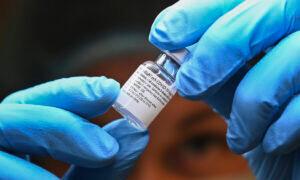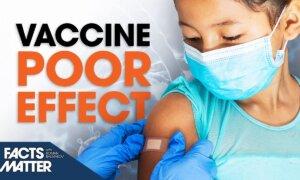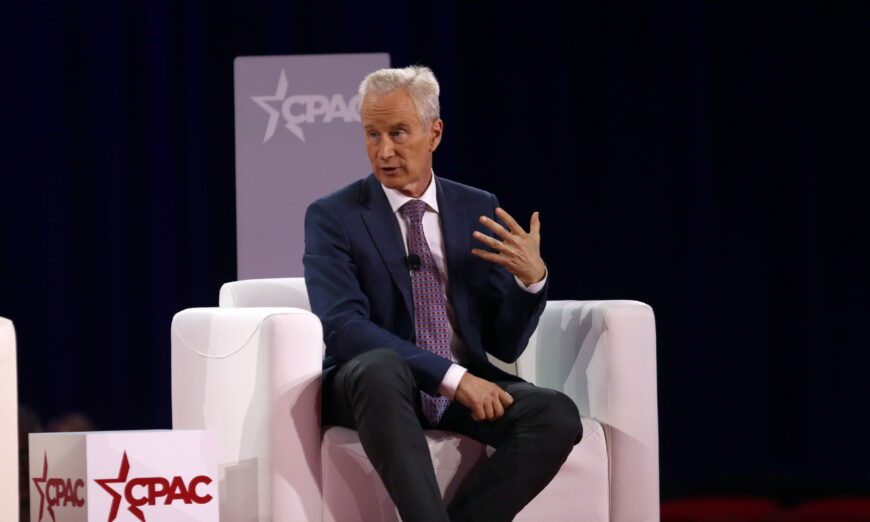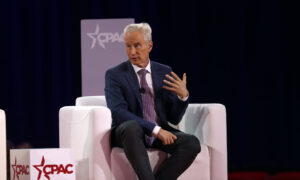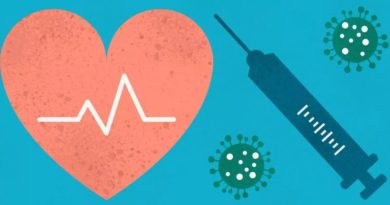‘Perfectly Reasonable to Skip’ COVID-19, Flu, RSV Fall Vaccines: Dr. McCullough
The cardiologist advised people to seek ‘early treatment’ for such infections rather than getting vaccinated.
Dr. Peter A. McCullough does not recommend healthy adults and children to take the fall vaccines as recommended by the U.S. Centers for Disease Control and Prevention (CDC), stating that the shots are not “compelling” and because the conditions are “easily treatable.”
As to the flu shots, “for the last few years, [they] have had statistically insignificant—from 0—efficacy against severe outcomes. So, flu shots don’t offer really any significant protection,” he said.
“Now, we have two FDA-approved drugs for influenza. They are safe. They are effective,” the cardiologist stated. However, “if someone were to get influenza, we have good testing, they can get early treatment and get through the illness” rather than opt for the vaccines.
“I am not recommending COVID-19 XBB.1.5 boosters, influenza, or respiratory syncytial virus vaccines for healthy adults or children. None of these vaccines are compelling and conditions are easily treatable,” he wrote.
“For healthy persons, it is perfectly reasonable to skip Fall vaccines and seek early treatment in the rare circumstance that one of these viral infections is contracted.”
- Flu vaccines for influenza: The agency recommends flu vaccines for “everyone aged six months and older.” It states that “people aged 65 and older should get a high-dose or adjuvanted flu vaccine if available.” The vaccines will reduce the risk of severe flu illness, hospitalization, and death, the agency claims. There are multiple flu vaccine shots approved for the 2023-2024 season.
- COVID-19 vaccines: CDC asks “everyone aged five years and older” to get one dose of the updated Pfizer or Moderna mRNA vaccines. Children aged six months to four years need “multiple doses of COVID-19 vaccine,” it said. Individuals who are moderately or severely immunocompromised are recommended multiple doses.
- RSV vaccines: The CDC recommends an RSV vaccine for adults and pregnant individuals and an RSV antibody immunization for babies. Adults aged 60 and older have been advised to consult with their doctors to determine whether an RSV vaccine is appropriate for them. The CDC insists that “all babies should receive protection from a serious RSV illness” through two options. The first involves an RSV vaccine injected into pregnant women who are 32-36 weeks into their pregnancy. The second option is the RSV antibody immunization program for all babies younger than eight months who are either born or entering their first RSV season.
COVID-19 Vaccines
In his Substack post, Dr. McCullough pointed out that COVID-19 vaccines have been “determined to be unsafe for human use” by the World Council for Health (WCH) and the Association for American Physicians and Surgeons (AAPS).

“Traditionally, vaccine development takes 10 years or more before large-scale production and distribution to a wide population. With COVID-19 vaccines, the product moved from exploratory, pre-clinical trials to large-scale manufacturing in just 10 months.”
“There are numerous safety signals, including excess sudden deaths, that would in the past have prompted immediate withdrawal of vaccines or drugs from the market,” it said. “Regulatory agencies are corrupted by conflicts of interest, lack of transparency, and lack of accountability.”
“The long-term effects of the novel mRNA or DNA technology and the lipid nanoparticles involved in their administration—including carcinogenesis, mutagenesis, autoimmune phenomena, and impairment of fertility—cannot possibly be known.”
“There’s not a single study showing that the messenger RNA is broken down,” he warned. Since the vaccines are “made synthetically, it cannot be broken down.”
“We have the spike protein—the lethal protein from the vaccines found in the human body after vaccination—circulating at least for six months, if not longer. And if people take an injection in another six months, there’s another installation in more circulating potentially lethal protein.”
RSV Vaccines and CDC
As for RSV vaccines, the FDA has approved two shots— RSVPreF3 (Arexvy) and RSVpreF (Abrysvo). While Arexvy is manufactured by GSK, Abrysvo is from Pfizer. Both vaccines come with a range of side effects.
Arexvy may cause reduced immune responses among people with a weakened immune system. The most common side effects are injection site pain, fatigue, muscle pain, and headache.

The endorsement was made in line with CDC’s shared clinical decision-making recommendation, which differs from its other three recommendations in that it does not have a default view that certain groups of people should get vaccinated.
The advisory panel made the recommendation after concluding that potential side effects and risks from the vaccine may outweigh potential benefits among people in the age group of 60 to 64.
The Pfizer vaccine showed an efficacy rate of 66.7 percent when it came to preventing laboratory-confirmed lower respiratory tract illness (LRTI). The GSK shot had an efficacy rate of 82.6 percent in preventing lower respiratory tract disease (LRTD).
However, both GSK and Pfizer trials only monitored the subjects from day 14 or 15 after vaccination. As such, the actual efficacy of these vaccines could be lower.
The Epoch Times reached out to the CDC and Pfizer for comment.
This article has been archived for your research. The original version from Epoch Times can be found here.
